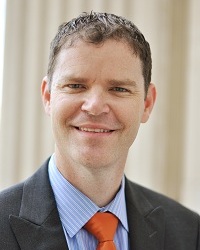 Criswell College Global Studies and World Religions associate professor Scott Bridger attended a ministry conference in Turkey in late September.
Criswell College Global Studies and World Religions associate professor Scott Bridger attended a ministry conference in Turkey in late September.
Over 150 ministry workers and leaders from North Africa and the Middle East gathered to hear speakers discuss topics related to ministry challenges, work in the region, and human trafficking.
Bridger participates in multiple ministry events and opportunities in the Middle East, an area of the world he felt called to reach out to since he gave his life to Christ at age 18. His specific academic and ministry background uniquely placed him in the opportunity to visit Turkey.
Bridger said that the gospel is making a dramatic difference by bridging the relational divide between Israeli and Palestinian residents.
“It doesn’t mean they suddenly overnight agree on political issues,” he said. “There are still differences. And yet the gospel breaks down the walls of hostility. A big chunk of people in the middle of the Israeli-Palestinian conflict want peace with their neighbors. It’s the politicians and the fringe elements on both sides. Interactions and words and policies tend to polarize and not unite. But the gospel is ultimately the solution to that issue.”
During the conference, a pastor highlighted the need to share the gospel to the lost in the Middle East by sharing a story about an Assyrian Christian woman who was forced into slavery by ISIS.
“[The] pastor who was telling this story got to visit her and her response was ‘where have you been?’” Bridger said. “She was sold, in captivity, involved in sexual slavery, and the pastor came and showed love and compassion.”
Bridger is a part-time consultant for a group that operates in the Middle East to help support indigenous ministries and a full-time Criswell College associate professor where he teaches World Religions and Intercultural Communications.
“My area and responsibility is to indigenous Israeli and indigenous Palestinian ministries in a bunch of spheres, from marketplace engagement to traditional kinds of church planting, evangelism and discipleship projects. That’s what took me to Turkey. There is hope in the gospel and the gospel is the hope for Israelis and Palestinians because its only in the gospel we experience this.”
During the time Bridger and his family lived in Israel, they were a part of a Messianic, Hebrew-speaking congregation in Haifa that practiced peacemaking, both spiritually and relationally.
“The congregation we were a part of brought in Arabs and Jews in the congregation united by their faith in Jesus. And our students this past summer got to experience a little bit of that firsthand and heard the testimony of a Jewish believer and an Arab believer who were both elders in the same congregation,” he said. “So, the gospel is ultimately the hope for people over there.”
According to Bridger, one of the advantages to the World Religions class he teaches is that students become more aware of the religiously pluralistic society in which we live.
“Religious diversity is a reality that our students need to be prepared to encounter and have a witness to give a reason for the hope that resides within them. So, having that experience, living as a minority most of my adult life in a majority-Jewish and majority-Muslim context, as a follower of Jesus, opens my eyes to the realities that minorities here have experienced,” he said. As Christians we need to be “sensitive to those and compassionate towards the marginalized . . . whether racial, ethnic, linguistic, and religious minorities.”

